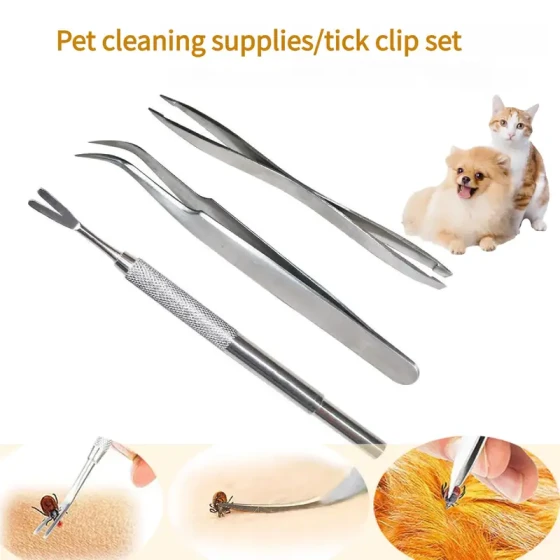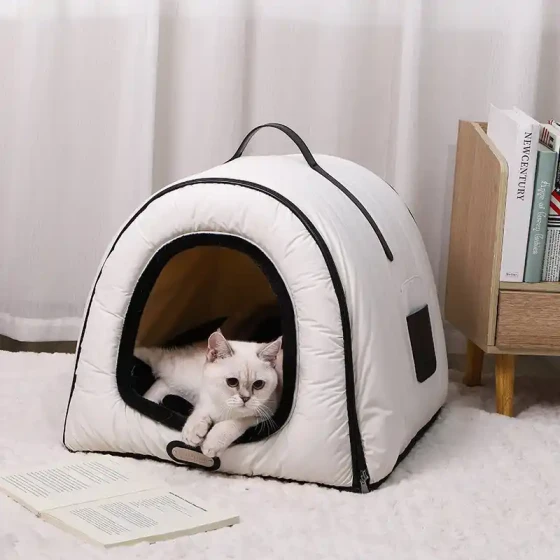How Often Should Pet Cats Be Dewormed_Scientific Deworming Schedule for a Healthier Pet
How often should pet cats be dewormed? This is a question many “pet owners” are concerned about, as it directly relates to the health of the cat and the safety of the family. Generally, the frequency of deworming for cats is not fixed; it varies depending on the cat’s age, living environment (whether purely indoor or outdoor), diet, and geographic location. A scientific and reasonable deworming schedule is key to ensuring the health of your pet and keeping parasites away.

Raising a healthy cat requires deworming as an essential step. Parasites are like “uninvited guests” inside the cat’s body quietly damaging its health. Parasites are mainly divided into internal parasites and external parasites. Common internal parasites include roundworms, hookworms, tapeworms, etc., which mainly live in the cat’s intestines and can cause weight loss, vomiting, diarrhea, and even threaten the cat’s life in severe cases. External parasites include fleas, ticks, mites, etc., which not only cause severe itching in cats but can also lead to skin diseases. Fleas are also intermediate hosts for tapeworms. More importantly, some parasites (such as Toxoplasma, although deworming medicines mainly target intestinal parasites, it is important to understand various parasites) are zoonotic and can infect humans. Regular deworming is especially important for households with children, elderly, or immunocompromised individuals for the health of the whole family.
Scientific Cat Deworming Schedule
Age is an important factor when making a deworming plan for cats:
- Kittens (2-6 months): Kittens usually require more frequent deworming. This is because they may contract parasites through their mother’s milk or have weaker immunity. Generally, the first internal deworming can start from 2-3 weeks old, then every 2 weeks until 3 months old. After 3 months, internal deworming can be changed to once a month until 6 months old.
- Adult cats (over 6 months): The frequency of deworming for adult cats mainly depends on their lifestyle.
- Purely indoor cats: If the cat never goes outside, has no contact with other animals, and safe food sources, the risk of parasite infection is relatively low. However, it is not zero risk, as parasite eggs can be brought in through shoe soles, clothing, etc. For these cats, it is usually recommended to do internal deworming every 3-6 months. External deworming depends on whether there are issues with fleas, mites, etc., or for preventive purposes every 1-3 months (depending on product instructions).
- Indoor/outdoor cats or free-range cats: These cats have greatly increased chances of contacting parasites and it is recommended to do combined internal and external deworming every month.
- Multi-cat households: If multiple cats are kept at home, even if they are indoor cats, the risk of parasite transmission between cats increases. It is advisable to increase the frequency of deworming accordingly and treat all cats simultaneously.
- Senior cats: Elderly cats may have declining bodily functions and require more cautious deworming. It is best to consult a veterinarian first to assess the overall health status, choose mild and effective deworming medicines, and determine an appropriate deworming frequency.
Internal Deworming vs. External Deworming
It should be clarified that internal deworming medicines and external deworming medicines generally target different types of parasites; some products are “all-in-one” targeting both internal and external parasites.
- Internal deworming: Mainly targets digestive tract parasites such as roundworms, hookworms, tapeworms, etc. Common administration methods include oral tablets or syrups.
- External deworming: Mainly targets skin surface parasites such as fleas, ticks, mites, etc. Common administration methods include spot-on treatments (applied on the back of the cat’s neck or other places the cat cannot lick).
To fully protect the cat, both internal and external deworming need to be performed regularly. Specific intervals and product use should follow veterinarian guidance.
How to Choose Deworming Medicines
The market is full of cat deworming products, which can make new pet owners confused. The safest approach is to consult a professional veterinarian. The vet will recommend the most suitable deworming products and dosage based on your cat’s age, weight, health condition, living environment, and the common parasites in your area. Never randomly purchase and use human deworming medicines or medicines for other animals on cats as this can be dangerous.
Post-Deworming Precautions
After deworming your cat, it is usually necessary to observe the cat’s mental state and appetite. Some cats may experience mild gastrointestinal discomfort such as vomiting or diarrhea after deworming; this is usually temporary. If symptoms persist or worsen, consult your veterinarian promptly. In the days following deworming, it is advisable to frequently clean the litter box and promptly remove any parasite bodies or eggs that may be discharged.
Deworming Q&A
- Can I deworm my cat myself?
Yes, many internal and external deworming products can be used at home, such as oral tablets or spot-ons. However, for first-time use or if unsure how to proceed, it’s best to seek veterinary guidance. - Do deworming medicines have side effects?
All medicines may have side effects, but cat deworming medicines are generally safe. Common side effects include mild gastrointestinal discomfort. Following product instructions and veterinarian advice strictly can reduce risks. - What if I forget to deworm my cat?
Make up the missed deworming as soon as possible, then continue with your planned schedule, or consult your vet to see if you need to adjust the frequency. - Why does deworming frequency vary?
Different living environments determine the level of parasite exposure risk. Cats that go outdoors encounter more parasite eggs and other animals and therefore require more frequent deworming. - Do purely indoor cats still need deworming?
Yes. Although the risk is lower, parasite eggs can enter the home through human clothes, shoes, or cats eating raw meat. Regular deworming is a necessary preventive measure.
Summary
Creating a scientific deworming plan for your cat is like buying health insurance for your feline friend. Regular internal and external deworming can effectively prevent parasite infestations, protect your cat’s health and vitality, and also safeguard your family’s health. Remember, the best deworming plan is tailored to your cat’s specific situation. Be sure to consult a professional veterinarian to get the most expert advice. Let’s work together to help our “fur kids” grow healthy and happy!





-560x560.webp)